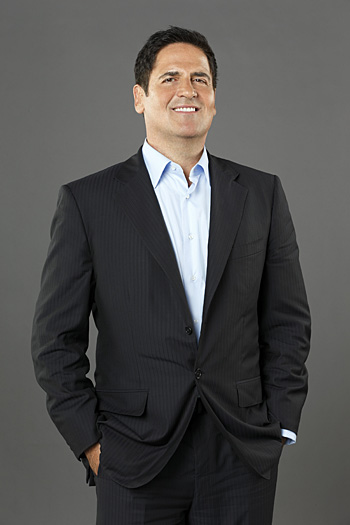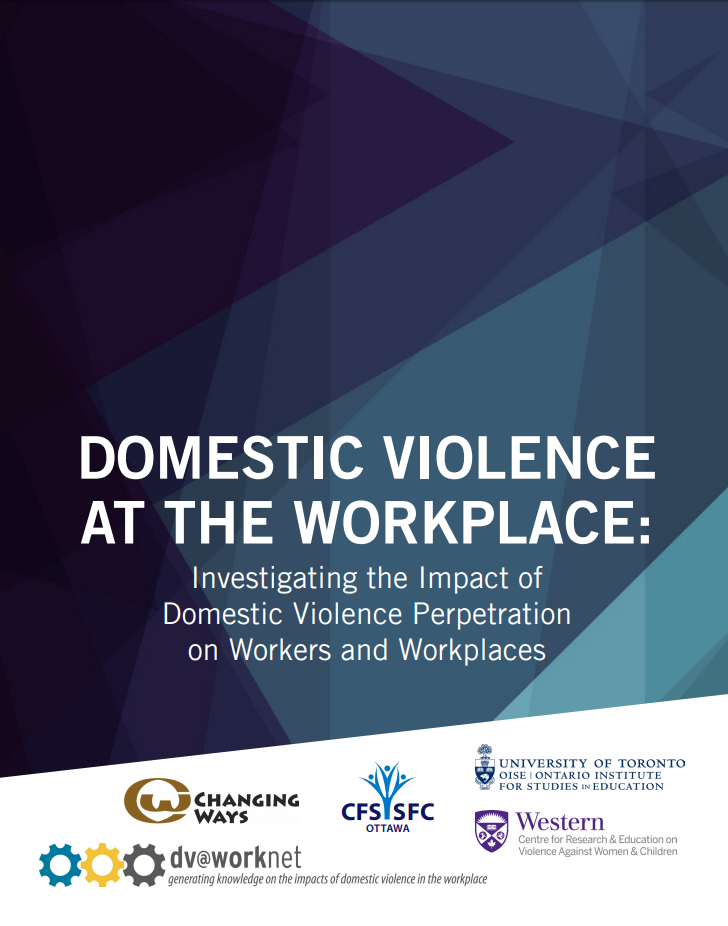Planning for change is not the ‘huge mistake’ for Mark Cuban
The Ontario Government passed Occupational Health and Safety legislation in 2010 to explicitly include domestic violence as a form of workplace violence. Legislating employers to protect workers from domestic violence at work is a progressive act of leadership on a complex social issue. As such, Ontario is the first jurisdiction in the world to take this step. It is a good news story for those working to protect jobs and increase safety for victims. That said; challenges inevitably follow complexity. Unintended and unanticipated consequences emerge with any system change that requires ongoing willingness on the part of leadership to learn and adapt – and to remain committed to the learning process when things go wrong. This past month a story unfolded in the U.S. sports world to underscore the complexity in addressing domestic violence in the workplace and the need for clear and unwavering leadership.
Mark Cuban, owner of the Dallas Mavericks basketball team, fired Earl Sneed, a beat reporter for the organization, after an article appeared in Sports Illustrated detailing Sneed’s history of domestic abuse. He was hired by the Mavericks during the 2010-11 season. He was charged with assault of his girlfriend in June of 2012. In 2014, Sneed hit his then-girlfriend, a team employee, in the face. Cuban admitted to keeping him on after the 2014 incident following a conversation he had with Sneed. He believed that Sneed was sincere and wanted to take steps to ensure he wouldn’t continue to be abusive elsewhere.

“I made the decision that we would make him go to domestic abuse counseling as a requirement to continued employment, that he was not allowed to be alone without a chaperone in the presence of any other women in the organization or any other women in a business setting at all, and he was not allowed to date anybody [who works for the Mavericks]. From that point on -- and the investigators are going to see if we missed anything else - he appeared to abide by all those rules, as far as I knew.”[1]
When the Sports Illustrated article was published, Cuban admitted that he hadn’t read the police report on Sneed in 2012. In hindsight Cuban stated that if he had read the report, he would have fired him then. In a subsequent interview by Sports Illustrated, Cuban said he was embarrassed to have made such a ‘huge’ mistake.
But is backing away from efforts to hold an employee accountable for abusive behaviour and demanding that they engage in remedial counselling a mistake that an employer should apologize for? Sneed released a statement after his firing to thank Cuban for “his willingness to help facilitate growth” through counselling” after the 2014 incident.[2] Research has shown that with support, most men who act abusively can change their behaviour.[3] Isn’t that the goal we ultimately want?
The mistake that Cuban made was in not investigating the situation thoroughly and examining the culture of his organization. Cuban has come under fire in other articles that describe him as a ‘hands-on’ owner who is questionably claiming ignorance about Sneed and other employees, including his CEO, in an organization described as having a “company environment that allowed rampant sexual misconduct” over many years.[4] Changing a toxic workplace culture takes time, commitment, leadership and a whole company approach[5]. Firing abusive workers should not be the default position for the very reason that Cuban initially identified. People can change and employers have a social and economic responsibility to the organization to provide the opportunity for change to take place. Simply firing him makes him someone else’s problem.[6] From an economic perspective, the investment made to develop and train a worker is never recouped under zero tolerance and associated replacement costs are considerable. This is not responsible leadership.

This brings us back to the unintended consequences in dealing with complex issues. University of Toronto and the Centre for Research and Education on Violence Against Women and Children at Western University recently released a 2017 study titled; Domestic Violence at the Workplace: Investigating the Impact of Domestic Violence Perpetration on Workers and Workplaces. The study found that that once a person is tagged as a risk for perpetrating domestic violence, their employment status becomes precarious. In too many situations, employers want to wash their hands of what they see as the ‘problem’ individual, without appreciating or exploring how individual behaviour is also rooted in a company environment. This attitude also has implications for the larger society. Unemployment actually increases risk of domestic homicide with violent offenders.[7] It is a sad irony that without a commitment to change, the legislation intended to create safer workplaces may have this unintended consequence of increasing risk in the community.
As an employer, Mark Cuban’s decision to mandate Sneed to get counselling and holding him accountable for subsequent behaviour may have been a catalyst for real change. Why not plan for that as an outcome? As the 2014 study suggests, we know that domestic violence is more common than we like to think with nearly 12% of workers reporting that they have a co-worker they believe is being abusive, or has previously been abusive, toward his/her partner.[8] When we understand how prevalent domestic violence is, we can then appreciate that those who perpetrate domestic violence are our co-workers, our supervisors, and those working under our supervision. Our intervention plan cannot be limited to screening out and removing everyone who has perpetrated violence – it is simply not feasible or reasonable to remove 12% of the workforce. We must instead develop a range of policy and intervention options to hold perpetrators accountable for their abuse in a way that allows for the possibility of change.
[1] SB Nation, Feb 21, 2018. Blog: Mark Cuban admits to ‘huge mistake’ in retaining Mavs.com reporter after domestic violence incidents.
[2] ibid
[3] Huffington Post: Do Abusive Men Change?
[4] SN Nation, Feb 20, 2018. Blog: Dallas Mavericks fostered company environment that allowed rampant sexual misconduct, per report.
[5] A whole company approach recognizes that everyone in the organization needs education, training and skill building to be prepared to meet their obligations and to respond effectively in situations of domestic violence.
[6] See: MOB blog: Zero Tolerance and the Concentration of Blame
[7] See: MIOB risk factors The Ontario Domestic Violence Death Review Committee has found in that being unemployed is a recurring risk factor in domestic homicides..
[8] See: MIOB: Pan Canadian study on Domestic Violence in the Workplace (2014).






